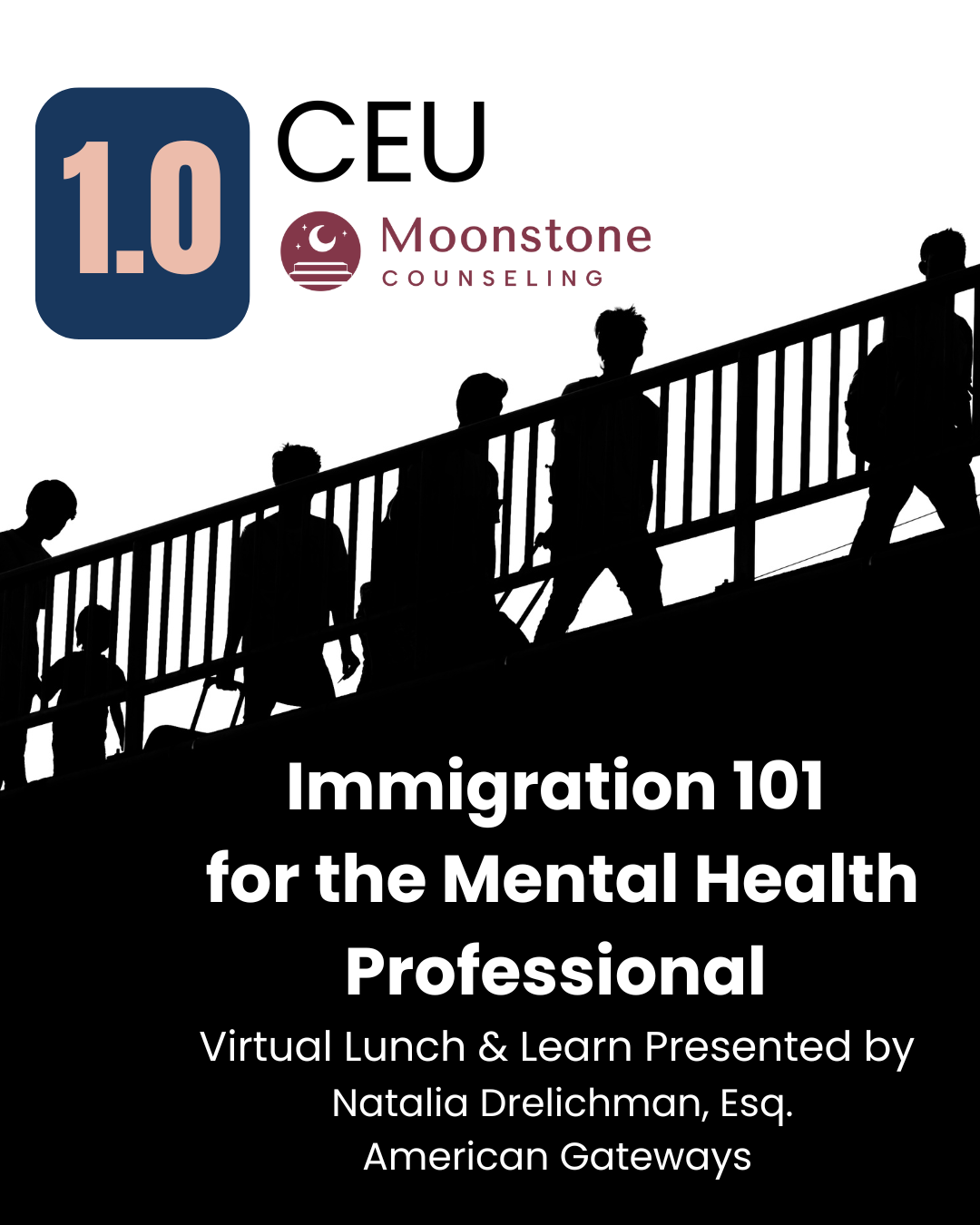Note NEW DATE: Friday, June 27
Immigration-related stressors often intersect with mental health in profound and complex ways. This 1.0-hour continuing education training, presented in collaboration with American Gateways, will provide therapists and mental health professionals with a foundational understanding of key immigration issues impacting clients in Central Texas and beyond.
Participants will gain insight into the legal realities faced by immigrants—including asylum seekers, undocumented individuals, and families facing deportation—and how these realities may present clinically.
The training will also explore ethical considerations in advocacy, appropriate therapist roles in immigration proceedings, and strategies for interprofessional collaboration with legal service providers.
Learning Objectives:
By the end of this training, participants will be able to:
Identify common immigration legal challenges affecting mental health clients in the current sociopolitical climate, particularly in Central Texas.
Recognize the psychological impact of immigration proceedings, family separation, detention, and legal uncertainty.
Describe appropriate and ethical roles that therapists can play in supporting undocumented clients and those involved in immigration cases.
Understand how to collaborate with immigration attorneys and advocacy organizations (e.g., through psychosocial letters or assessments) in a trauma-informed and legally informed manner.
Explain the rights of immigrant clients in accessing mental health services and maintaining confidentiality, including in the context of encounters with immigration enforcement.
Identify advocacy actions at the organizational or community level that mental health professionals can take to support immigrant rights and systemic change.
American Gateways
American Gateways has served the Central Texas immigrant community since 1987. Founded as the Political Asylum Project of Austin (PAPA), they began as a dedicated group of volunteers working to serve increasing number of refugees fleeing war in Central America. Since then they have grown to provide a broad range of immigration legal services to low-income individuals and families throughout the region.

